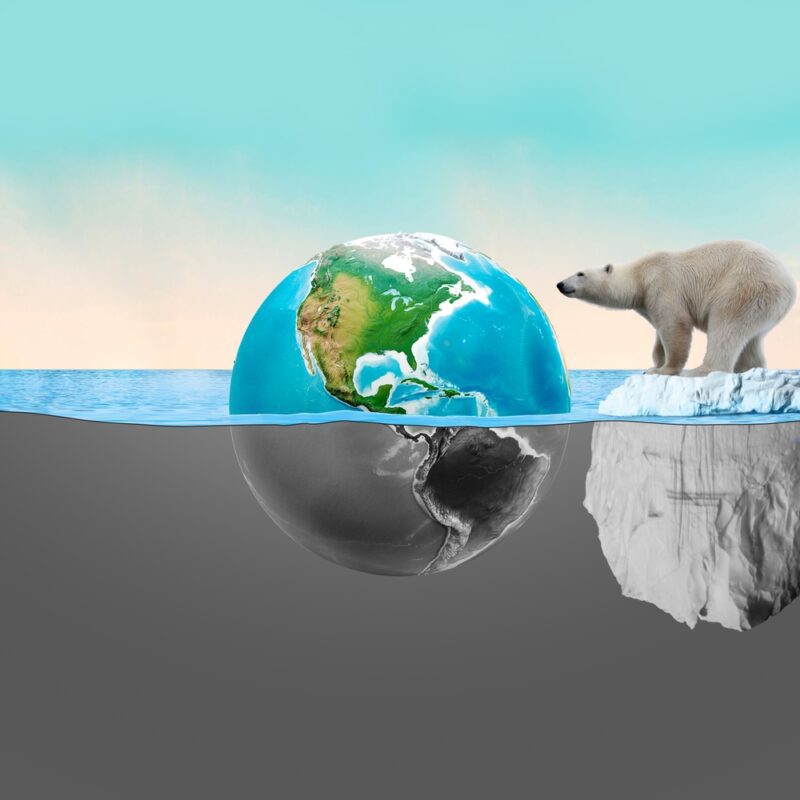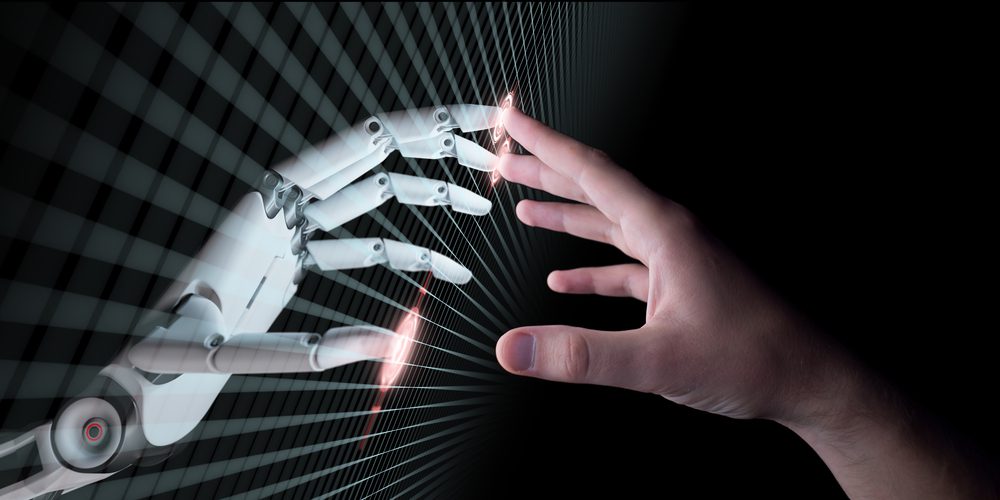Are you curious to see what are the best scientific discoveries of 2023?
There’s usually a sense of contemplation after one year and the start of the next. A revered and cherished life milestone is the turning of the year, which signifies the passing of time. No matter the year or the catastrophic worldwide epidemic, science advances constantly. Let’s look at a few of the professional achievements of scientists this year and decide which of these scientific discoveries of 2023 was by far the best:

Photo by kalantor from Shutterstock
1. New record low Antarctic sea ice
This is probably one of the saddest scientific discoveries of 2023. Sea ice in the Antarctic hit a record low maximum in the satellite record that started in 1979 on September 10, 2023, when it hit an annual maximum extent of 16.96 million square kilometers. The maximum for this year is 1.03 million square kilometers less than the previous low record from 1986.
Additionally, it is 1.75 million square kilometers less than the average maximum Antarctic extent from 1981 to 2010. Sea ice has sustained record-low ice growth since early April 2023. The fact that Antarctica might disappear in a few years is alarming news.
2. Microlungs are a thing now
A platform that grows lung cells from human embryonic stem cells using microchips has been created, according to scientists. Without the molecular extras that distinguish individual lungs from one another, these deconstructed “micro lungs” retain all the intricacy of lung tissue, enabling researchers to focus on the complex nature of how illnesses affect lung tissue without being interrupted.
The goal of the project is to evaluate novel treatment options for COVID-19, influenza, RSV, pulmonary illnesses, and lung cancer by studying their processes in micro-lungs.
3. Sixth mass extinction is on the horizon
As you may probably guess, there are also scientific discoveries of 2023 that aren’t exactly that good. As with the melting ice from Antarctica, according to scientists, humanity is slowly heading to the sixth mass extinction.
According to a study from the University of Hawaii at Manoa, over the past million years, animal species have been becoming extinct at a pace 35 times quicker than background rates. This suggests that the earth is going through an acceleration of a human-driven sixth major extinction event.
Mass extinctions of biodiversity have occurred five times in Earth’s history, and scientists believe a sixth one is currently occurring due solely to human activity.
4. Synthetic human embryos created from stem cells
Another one of the scientific discoveries of 2023 is the invention of synthetic human embryos. Researchers from the California Institute of Technology and the University of Cambridge used stem cells to produce artificial human embryos, a ground-breaking development that eliminates the need for sperm or eggs.
The model embryos may offer a critical insight into the effects of genetic abnormalities and the biochemical reasons for recurrent miscarriages, as they imitate those in the early stages of human development.
5. Transplant of functional cryopreserved rat kidney
For the first time, kidneys from rats can be cryogenically stored for up to 100 days, successfully rewarmed via a novel technique, freed of cryoprotective fluids and nanoparticles, and then properly transplanted into rats to fully restore kidney function, according to research from the University of Minnesota.
The unique nanowarming method rapidly and evenly heats the organ from the inside out rather than simply the surface. The method may be applied to larger organs in all respects, as the researchers have demonstrated. They will now try to exhibit the procedure on pig kidneys.
It may take some time for it to be applied to people as well, but experts remain optimistic about the future!
…psst! This is recommendation time: for today we have a great book everybody should have in their bookcase. What If?: An Intellectual Gift can be found on Amazon in both versions Kindle and hardcover for under $20.
You might be interested in adding to the cart if you’re an avid lover of science. Written in a friendlier manner the book can be understood by anybody no matter how used or not with the scientific specific language.
6. The brain of an octopus was finally monitored
For the first time in history, scientists finally managed to record the waves of an octopus, making this one of the best scientific discoveries of 2023! Let’s see what happened.
Even experienced marine biologists will struggle to connect anything to an octopus, even though they are among the most intellectual animals in the world but they are kind of slippery too. For these and other rather obvious reasons, nothing was known about how octopuses’ brains function.
However, it ultimately took place in March 2023, earlier this year. Researchers have identified the specific brain waves linked to human memory consolidation and the regulation of sleep cycles in some other species.
They also reported very powerful, very slow brain waves that were unique.

7. Type 1 diabetes may be controlled with the help of an implanted cell
Among all these scientific discoveries of 2023, this is probably one of the best ones for people who suffer from type 1 diabetes! The American Diabetes Association states that type 1 diabetes, which is caused by the body’s inability to generate enough insulin, has a significant hereditary component and may be brought on by environmental factors that are still unclear.
It makes the body’s immune system target cells that make insulin, but in March 2023, researchers at the Swiss research institution ETH Zurich discovered a clever way to stop the illness in its tracks.
To put it simply, it’s an implanted fuel cell the size of a tea bag that senses excess glucose when blood sugar levels increase. This is going to be used in conjunction with artificial cells inside the implant to produce and secrete insulin.
This procedure automatically ends when the body’s level of glucose returns to normal, enabling the body to regulate its blood sugar levels like that of those people who don’t have type 1 diabetes.
8. Vaccine against RSV in infants
When we slowly came to the end of our article, we couldn’t stay away from mentioning another one of the best scientific discoveries of 2023. The first vaccination to protect unborn children from RSV infection until they are six months old was authorized by the FDA in August for use in pregnant women.
The use of Abrysvo is permitted between weeks 32 and 36 of pregnancy. It is administered into the muscle as a single dosage. Thankfully, Abrysvo’s safety was assessed in two trials, and neither study revealed any negative side effects. Just a slight amount of headache, nausea, muscular soreness, and injection site pain.
Are you aware of any other scientific discoveries of 2023? If so, let’s move the discussion further into the comments section.
If you’re a science lover, you are in the right place! Here we have plenty of articles to choose from. We have everything from asteroids, black holes, and other scientific discoveries for you.
And if you enjoyed reading about the best scientific discoveries of 2023 you’ll love this article too: 8 Scary Science Facts That Make Us Say: Wow!














